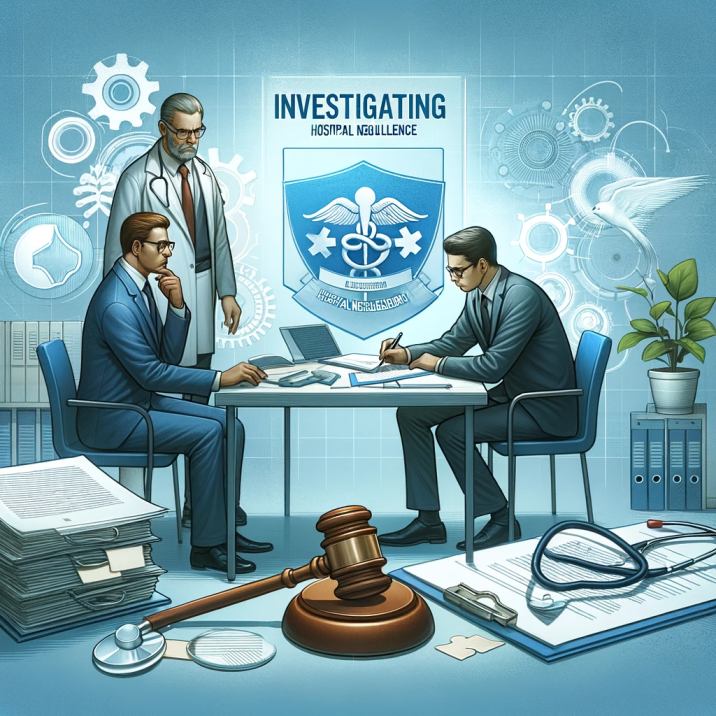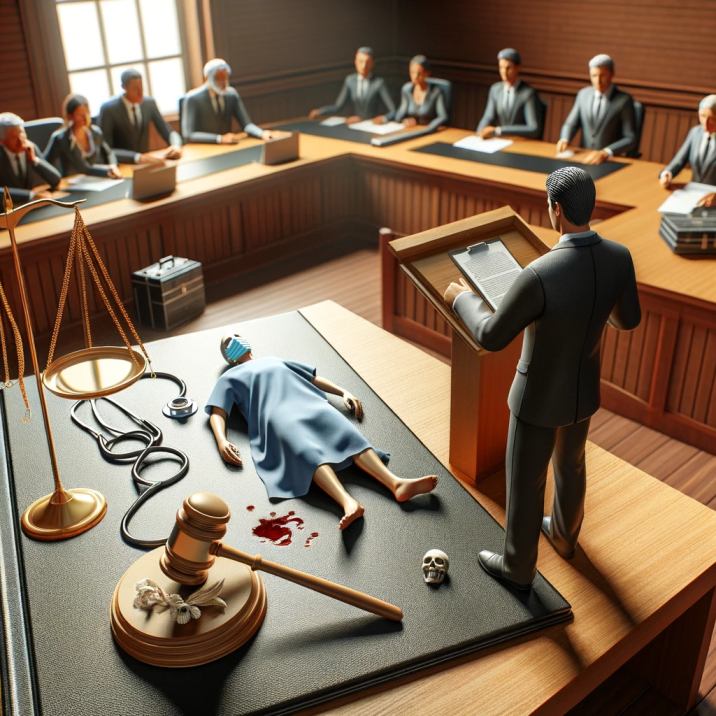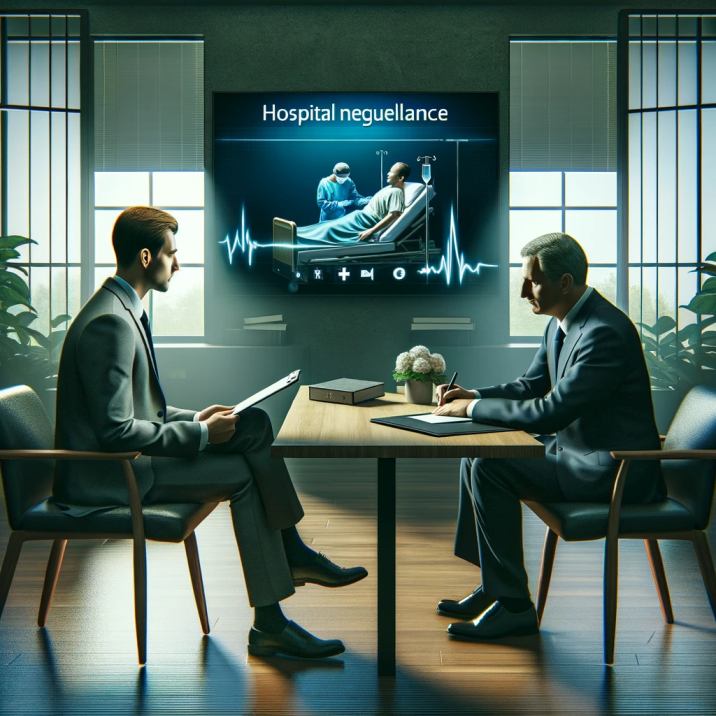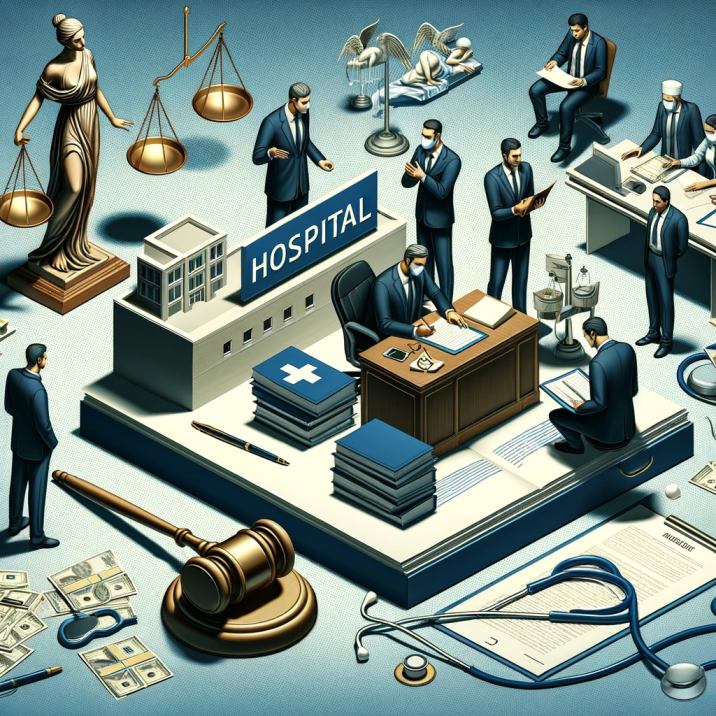What Constitutes Hospital Negligence?
Hospital negligence occurs when a patient receives substandard care that leads to injury or worsening of their condition. This can include misdiagnosis, surgical errors, medication mistakes, and inadequate post-operative care. Understanding the nuances of such negligence is crucial for both patients and legal professionals.
The Impact of Negligence on Patients
Negligence in hospitals can have devastating effects on patients, ranging from prolonged recovery times to permanent disability or even death. The emotional and financial toll on the patients and their families can be enormous.
Role of Lawyer in Hospital Negligence
Legal Expertise and Guidance

Lawyers specializing in medical malpractice play a pivotal role in hospital negligence cases. They offer expert legal guidance, helping victims understand their rights and the complexities of medical law.
Investigating Claims

A crucial step in these cases is the thorough investigation of the claim. Lawyers collaborate with medical experts to scrutinize medical records, procedures followed, and the standard of care provided.
Advocating for the Victim

Negotiating with Insurance Companies

Lawyers often negotiate with insurance companies to secure fair compensation for their clients, ensuring that victims are not short-changed.
Representing in Court

If a settlement cannot be reached, the lawyer represents the victim in court, presenting evidence and expert testimonies to prove negligence.
The Process of a Hospital Negligence Case
Initial Consultation and Case Evaluation

The process begins with an initial consultation where the lawyer evaluates the case’s merits and advises on the best course of action.
Gathering Evidence

Collecting and analyzing medical records and other relevant evidence is a critical step in building a strong case.
Legal Proceedings

This includes filing a lawsuit, discovery, and, if necessary, going to trial. Throughout these stages, the lawyer’s expertise is invaluable in navigating the legal system.
The Importance of Choosing the Right Lawyer
Specialization and Experience

Selecting a lawyer with specialization in medical malpractice and a track record of successfully handling hospital negligence cases is crucial.
Understanding and Compassion

A lawyer who understands the emotional impact of medical negligence and shows compassion towards the victim can make the legal process less daunting.
Conclusion: The Vital Role of Lawyers in Hospital Negligence

Lawyers play an indispensable role in hospital negligence cases. They provide the necessary legal expertise, support, and representation to ensure that victims receive the justice and compensation they deserve. Choosing the right lawyer can significantly impact the outcome of these cases, offering hope and closure to those affected by hospital negligence.
FAQ (FREQUENTLY ASKED QUESTIONS) :-Role of Lawyer in Hospital Negligence
- What is hospital negligence?
Hospital negligence refers to substandard care provided by a healthcare facility or its staff, leading to patient harm. - How do lawyers help in hospital negligence cases?
Lawyers assist by providing legal advice, investigating claims, negotiating settlements, and representing clients in court. - What kind of evidence is needed in a hospital negligence case?
Medical records, expert testimonies, and documentation of the harm suffered are crucial pieces of evidence. - Can a lawyer help if the negligence resulted in death?
Yes, lawyers can assist in wrongful death claims arising from hospital negligence. - How long do I have to file a hospital negligence lawsuit?
This varies by jurisdiction, but generally, there’s a limited period post-incident to file a lawsuit, known as the statute of limitations. - What compensation can be claimed in hospital negligence cases?
Compensation can include medical expenses, lost wages, pain and suffering, and sometimes punitive damages. - Is it expensive to hire a lawyer for a hospital negligence case?
Many medical malpractice lawyers work on a contingency fee basis, meaning they get paid only if you win the case. - How do I choose the right lawyer for my case?
Look for a lawyer with experience in medical malpractice and a track record of successful outcomes in similar cases. - Can a hospital negligence case be settled out of court?
Yes, many cases are settled through negotiations before reaching trial. - What is the role of a medical expert in these cases?
Medical experts provide insights on standard care and how the negligence occurred. - How long does a hospital negligence lawsuit typically take?
It can vary from months to years, depending on the case’s complexity. - Can I sue for emotional distress in a hospital negligence case?
Yes, if you can prove that the negligence caused significant emotional harm. - What if I can’t afford medical treatment for the harm caused?
Some lawyers may help arrange medical care contingent on the lawsuit’s outcome. - Can I sue for hospital negligence if I signed a consent form?
Yes, if you can prove that the harm was due to negligence and not an acknowledged risk. - What should I do first if I suspect hospital negligence?
Consult a lawyer specialized in medical malpractice to discuss your case. - Can nurses or other staff be held liable, or just doctors?
Any healthcare provider responsible for the negligence can be held liable. - What is a contingency fee?
It’s a fee structure where the lawyer gets paid a percentage of the settlement or award. - Can I file a negligence case against a government hospital?
Yes, but there may be special procedures and limitations. - What’s the difference between medical malpractice and hospital negligence?
Medical malpractice typically refers to the conduct of individual healthcare professionals, while hospital negligence can involve broader systemic issues. - How is pain and suffering calculated in these cases?
It varies but generally involves considering the severity and duration of the suffering. - Can I sue for future medical expenses due to the negligence?
Yes, future medical expenses can be included in the compensation claim. - What if the victim was a child?
Special rules often apply, and a guardian usually files the lawsuit on behalf of the child. - Are punitive damages common in hospital negligence cases?
They are less common and typically awarded in cases of egregious conduct. - Can I file a lawsuit if the negligence didn’t cause a severe injury?
Yes, if you can prove negligence and some form of harm, however minor. - What is a settlement in a hospital negligence case?
A settlement is an agreement to resolve the case without going to trial, often involving compensation. - How do I prove loss of income in these cases?
Through employment records, pay stubs, and sometimes expert testimony on future earning capacity. - Can a lawyer help if I’m not sure if there was negligence?
Yes, a lawyer can help determine if there’s a viable case. - What happens if the case goes to trial?
The case is presented before a judge or jury, who decide on liability and damages. - Can I sue a hospital for a misdiagnosis?
Yes, if the misdiagnosis was due to negligence. - What is informed consent in the context of hospital negligence?
Informed consent means the patient was adequately informed about the risks of a procedure, which is a key factor in many negligence cases.
Sources:-
















